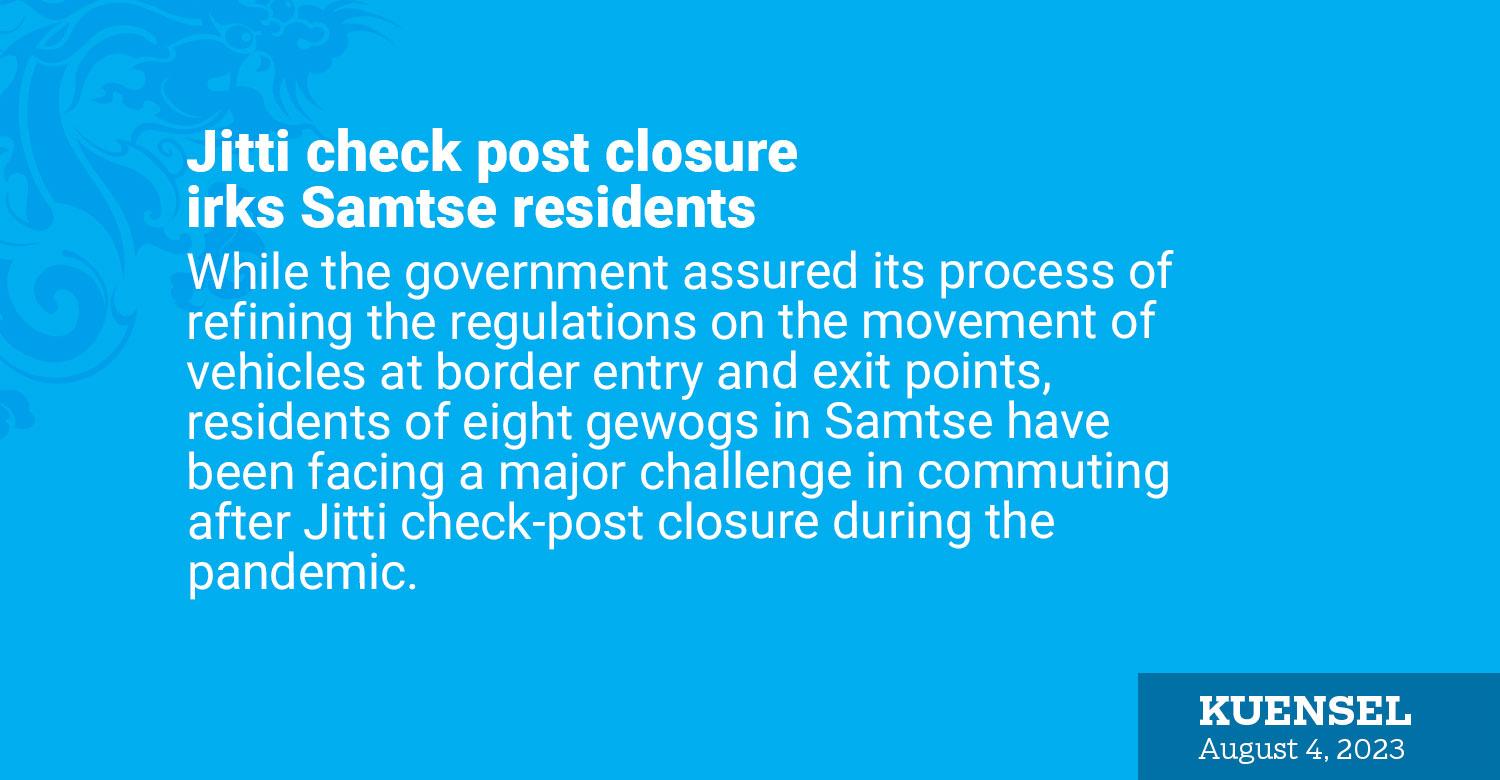YK Poudel
While the government assured its process of refining the regulations on the movement of vehicles at border entry and exit points, residents of eight gewogs in Samtse have been facing a major challenge in commuting after Jitti check-post closure during the pandemic.
The business operators in these gewogs claim that the closure of Jitti check-post in Sang-Ngag-Choeling gewog has caused substantial business losses and significant restrictions.
Sangay, a businessman, said that as the distance between the towns got longer, it incurred extra expenses for the shopkeepers in the locality. “The check-post closure has affected the small-scale business sector.”
He said that despite talks in the National Assembly last month, no infrastructure development works or regulations were put in place.
At the last session, Prime Minister, Dr Lotay Tshering said that it was important to assess the situation and evaluate the associated benefits before implementing any plans. “The government’s objective is to strike a balance between facilitating necessary border movements and ensuring the safety and security of the region.”
Sangay said that earlier, every vehicle could just pass through Jitti check-post and get the commercial goods. “With the restriction for smaller vehicles, we have to now rely on bigger commercial stores for various commodities at a higher cost.”
When the borders reopened after the pandemic, he said, people living near the check post and the surrounding eight gewogs, encountered significant restrictions that led to substantial business losses.
Anil, another shopkeeper, said that with a closed check-post at Jitti, they are either forced to visit Samtse check-post or go to Siliguri via Tendu. “Travelling longer distances is costly for small businesses.”
Previously, travelling to Siliguri via Jitti was easier with just around 120 kilometres.
One of the businessmen said that due to the ongoing Gyalsung project, only government vehicles and heavy vehicles were allowed to use the check-post while private vehicles were restricted for security reasons. Some authorities misuse their vehicle to visit the neighbouring areas through the check post, he claimed.
Sang-Nga-Choeling Gup, Phata Singh Ghalley, said that the closure of the check-post has helped in the movement of people from within the country. “Although the public are facing several inconveniences, it has helped internal businesses grow.”
“The gewog does not have authority to establish immigration office and other infrastructure as it has to route through the government. The gewog is hopeful of timely facilitation of some updates for the betterment of the public,” he said.
Before the pandemic, Bhutan and India had around 176 points of entry and exit along the border, stretching from Trashiyangtse to Samtse. However, the number of accessible border points was reduced to about 13 key areas for business and travel purposes after the reopening.


